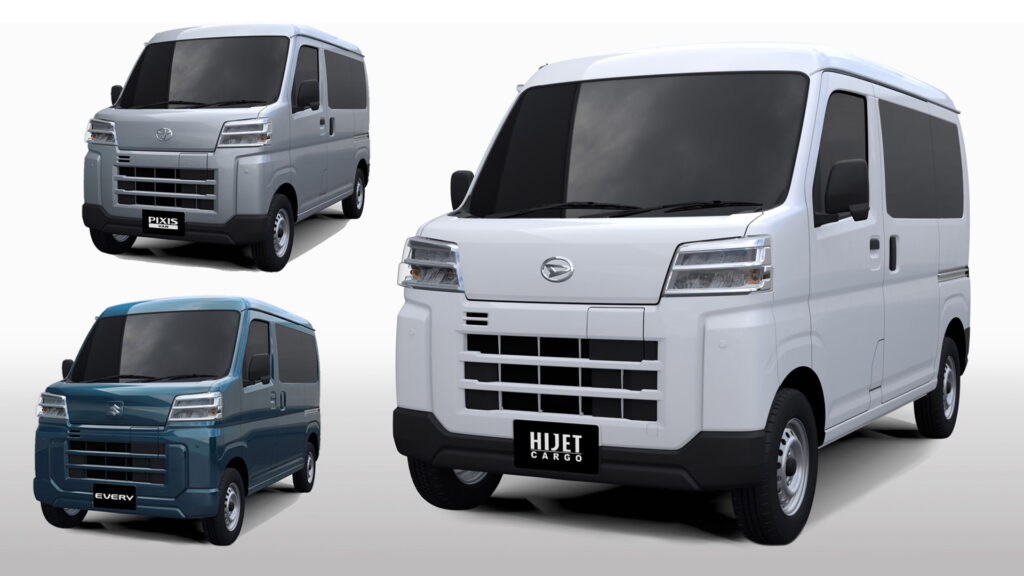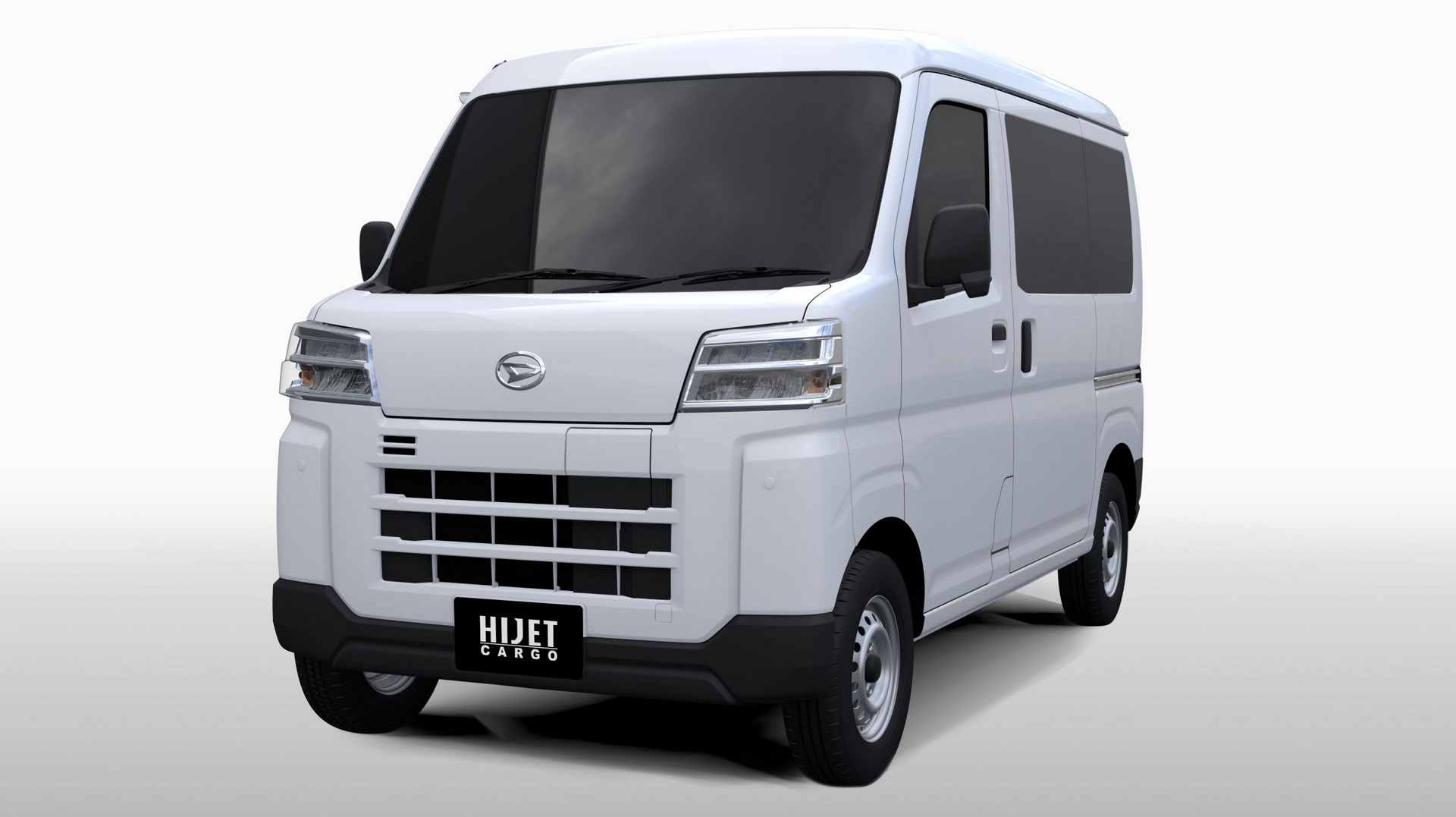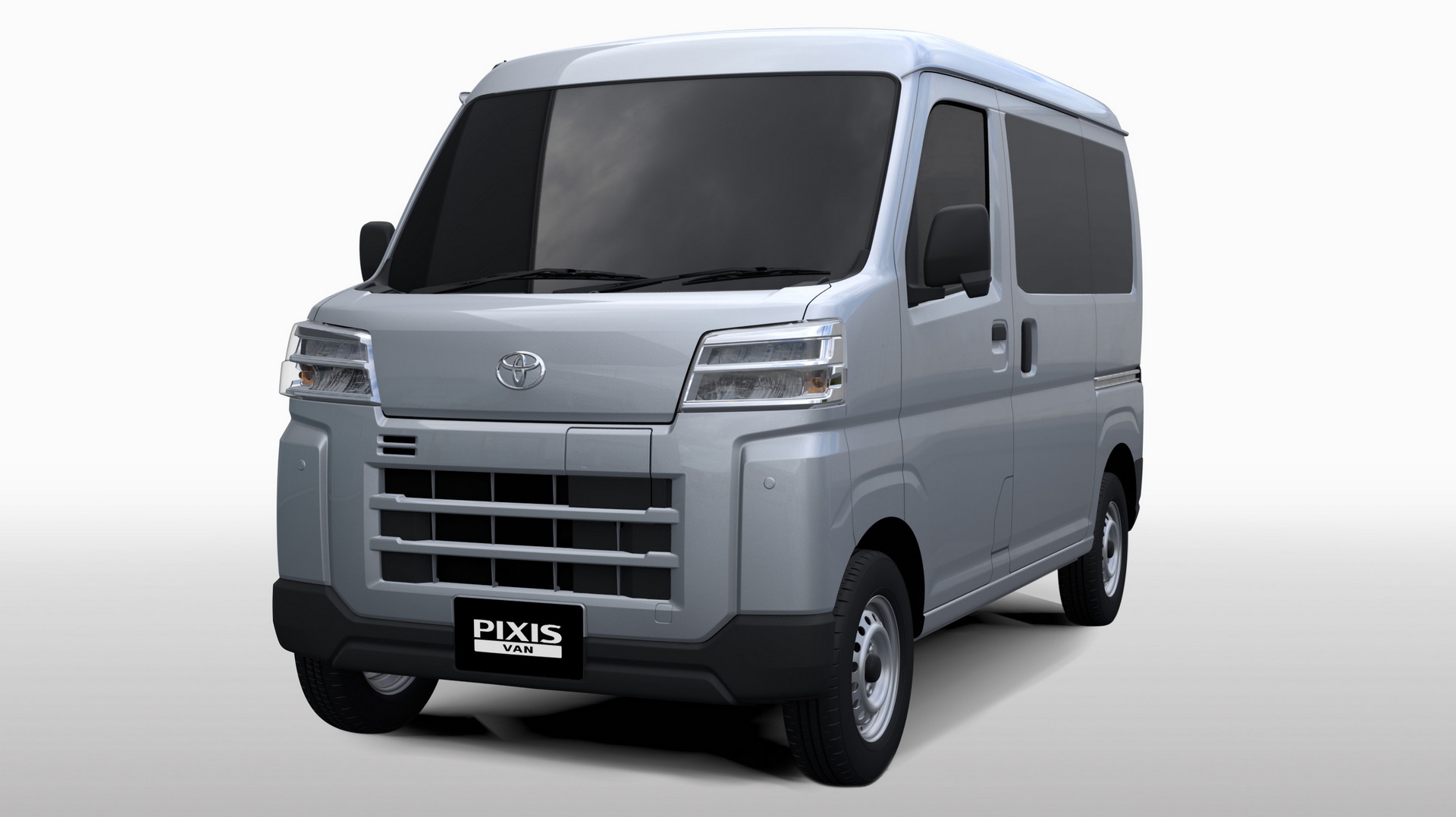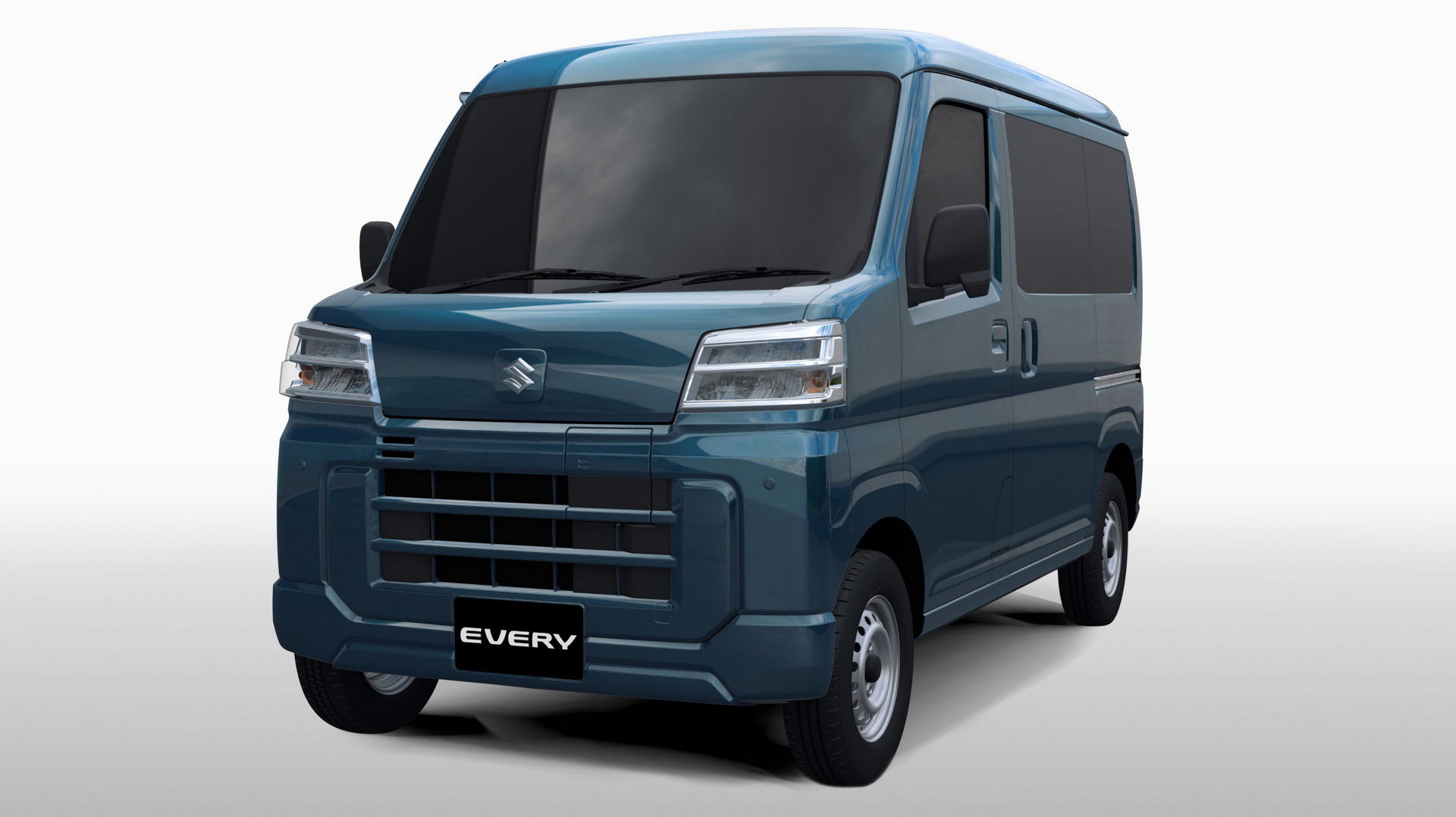The kei car / van segment in Japan is getting increasingly electrified as more local companies show their proposals. The latest example is the synergy between Toyota, Suzuki, and Daihatsu, for zero-emission variants of their commercial vans which debuted in prototype form at a special event organized by the Japan Automobile Manufacturers Association during the G7 Hiroshima Summit.
The kei vans are based on the current generation of the Daihatsu Hijet that debuted in December 2021, with the closely-related Toyota Pixis Van and Suzuki Every being proud products of rebadging. The exterior looks identical to the ICE-powered versions, with the exception of the charging port that is located on the front bumper, and the absence of a tailpipe at the back. Of course, each automaker added its own badge on the tiny bonnet, tailgate, and steering wheel.
More: New Electric Honda N-Van Coming To Japan In 2024 With A $7.4k Price Tag
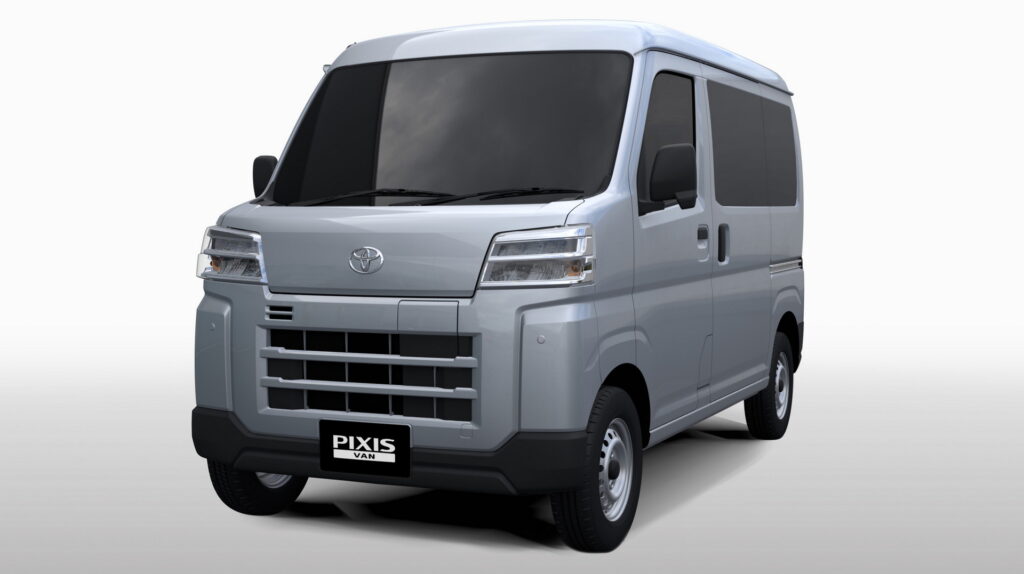
The companies didn’t provide detailed specifications of the “jointly developed BEV system” but mentioned an expected range of 200 km (124 miles) between charges which is on par with upcoming rivals in the segment. The ability to make EVs based on the DNGA platform hints at more electrified products in the future, including similar conversions of the equivalent passenger kei van.
The final production EVs will be unveiled in 2023 although we suspect they will look just like the pictured concepts. As with their combustion-engined siblings, the electric kei vans will be locally manufactured by Daihatsu. The new models designed to cover the needs of professionals in the delivery sector will allow Daihatsu, Toyota, and Suzuki to rival the veteran Mitsubishi Minicab MiEV and the upcoming electric Honda N-Van.




